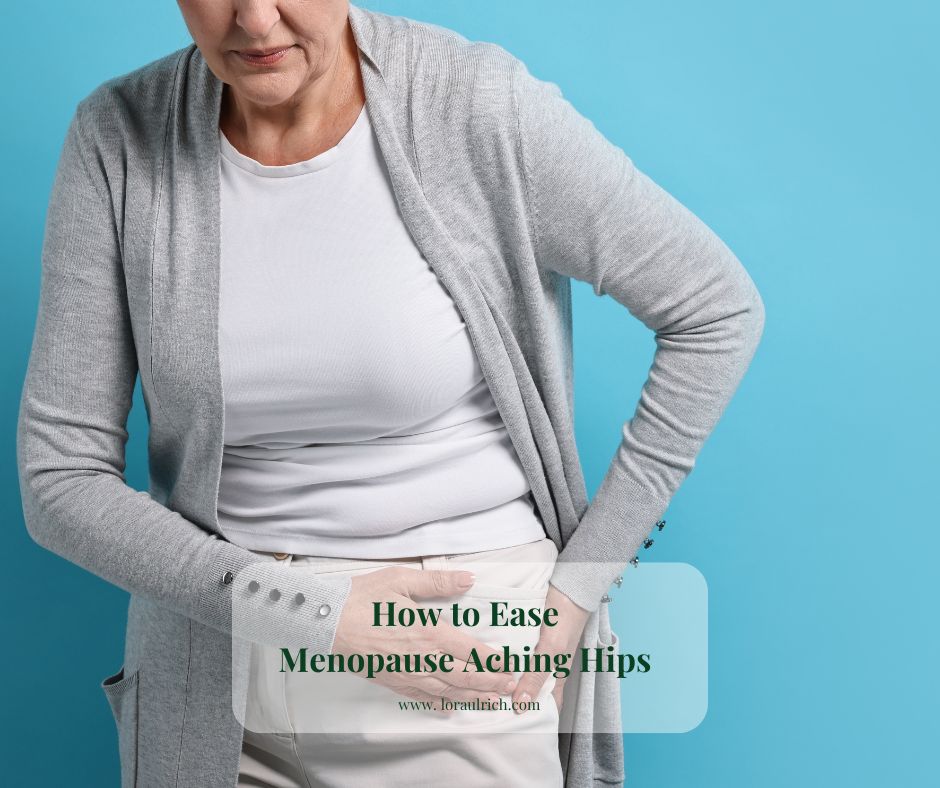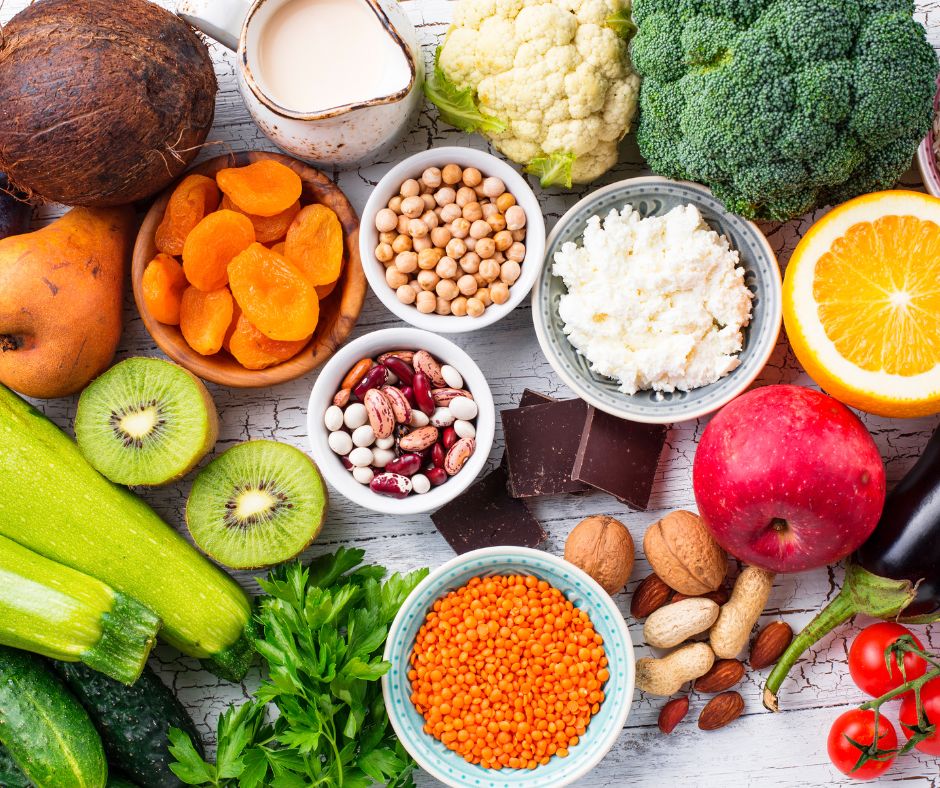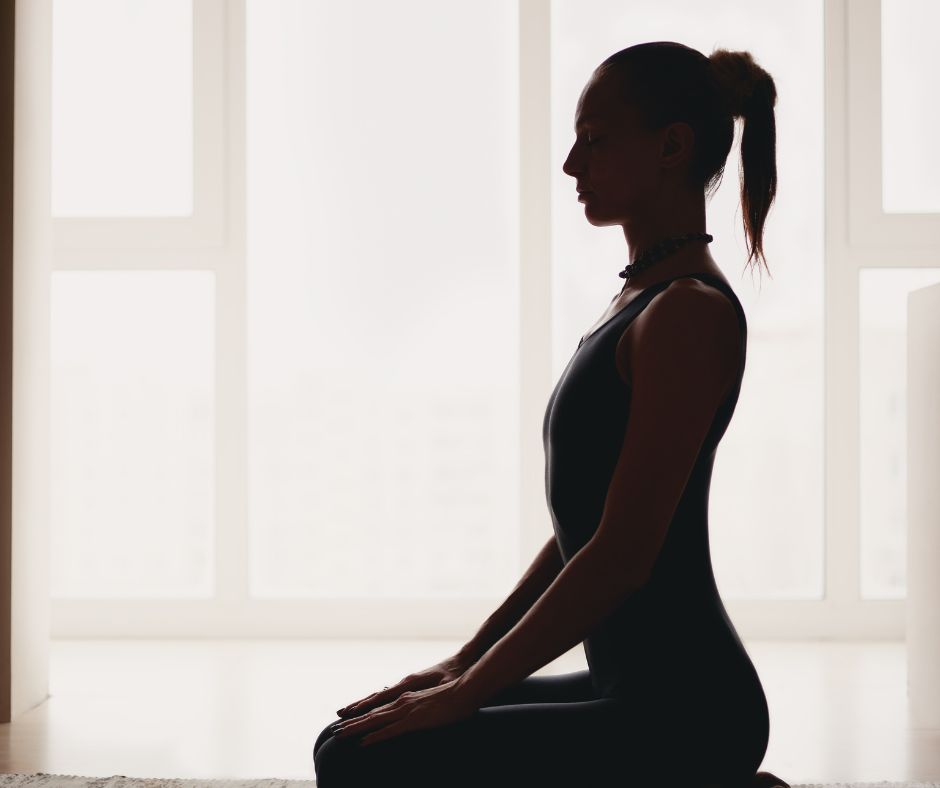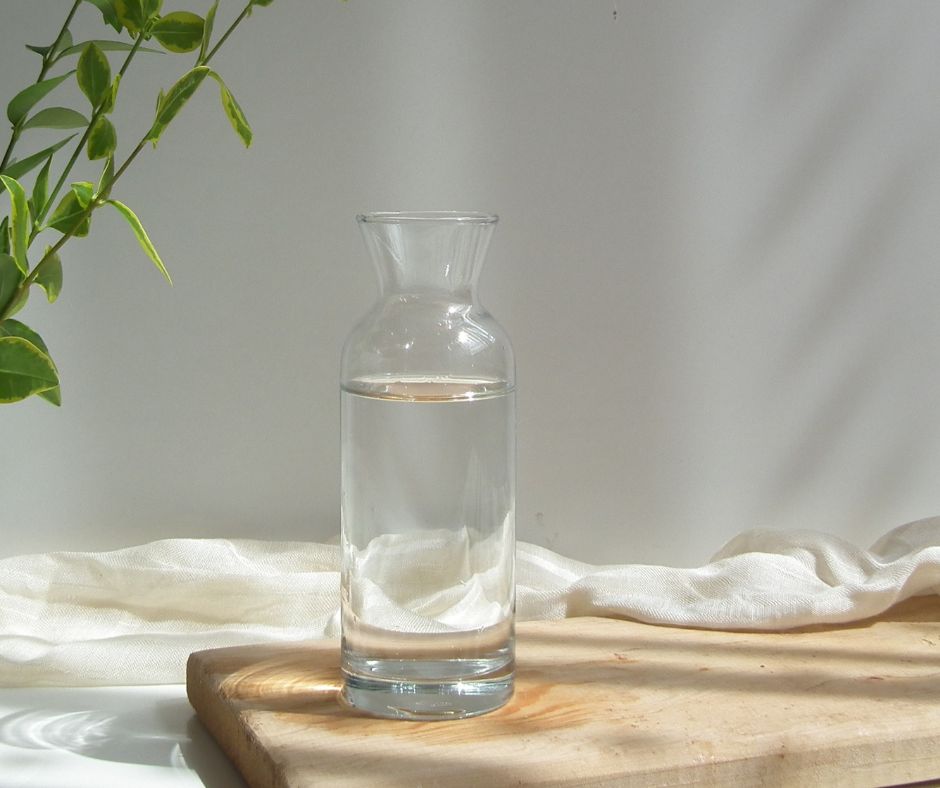
Hip pain during menopause isn’t random, and it’s not just “getting older.” In my work as a menopause health coach, I help women decode these messages and understand what aching hips mean for their body.
This post explores how to ease menopause-related hip pain with a hormone-smart approach, offering practical strategies to support joint health and overall wellbeing.
Why Do Hips Ache During Menopause?
Estrogen isn’t just about periods and hot flashes – it plays a key role in joint health, bone density, and inflammation regulation. As estrogen levels decline during perimenopause and menopause, your body becomes more prone to:
- Joint stiffness and pain, especially in weight-bearing areas like the hips
- Inflammation, which can make existing discomfort worse
- Reduced collagen production, affecting the connective tissues around joints
- Bone density loss, increasing pressure and sensitivity in the hips
According to The Menopause Charity, estrogen receptors are found in joint tissues, so its decline can trigger inflammation and reduced mobility.
Signs It Might Be Menopause-Related
If you’re experiencing any of the following, menopause aching hips could be the culprit:
- Morning stiffness that improves as the day goes on
- Aching after long periods of sitting or inactivity
- Discomfort during sleep or when lying on your side
- No clear injury or trauma to explain the pain
- Accompanied by other symptoms like hot flashes, mood swings, or fatigue
What You Can Do to Ease Menopause Aching Hips
Here’s the good news: you’re not stuck with this discomfort. There are hormone-friendly ways to support your hips and feel better.
1. Support Your Metabolism and Reduce Inflammation
As a Metabolism Specialist, I often see women struggling with hidden insulin resistance during menopause. Stabilizing blood sugar through balanced meals can reduce systemic inflammation and ease joint pain.
- Focus on low-glycemic foods
- Include omega-3s (like flaxseed, walnuts, and salmon)
- Avoid ultra-processed foods and excess sugar
Check out my hormone-smart recipe collection, and feel free to browse around! Each recipe is crafted to support midlife wellness with ingredients that love your hormones and joints.
2. Gentle Movement That Builds Strength
You don’t need intense workouts. Consistency and joint-friendly movement are key.
- Try walking, Pilates, or yoga
- Strengthen glutes and core to support hip alignment
- Stretch daily, especially after sitting
3. Hydration and Collagen Support
Dehydration issues mean cranky joints.
- Drink plenty of water
- Consider collagen-rich foods or bone health supplements
Many of my clients find that incorporating the right supplement support can make a noticeable difference. One I often recommend is MagneCal D – a magnesium, calcium, and vitamin D that supports bone density and helps ease those pesky hip aches linked to menopause-related inflammation.
4. Mind-Body Connection
Stress can amplify pain. Emotional wellness is a powerful ally in managing midlife symptoms and reclaiming your vitality.
- Practice breathwork or meditation
- Journal or talk through emotional shifts
- Prioritize sleep and rest
Want support in building these habits? I’m offering a free 30-day guest pass to the Calm App – a beautiful tool for breathwork, sleep stories, and meditations. Click here to claim your pass and start your journey toward deeper mind-body harmony.



FAQS
Is hip pain during menopause different from typical hip pain?
Yes. Menopause-related hip pain often stems from hormonal changes rather than injury or overuse. As estrogen levels decline, it can weaken the tendons around the hip, increase inflammation, and reduce joint cushioning. These shifts can lead to a specific condition called gluteal tendinopathy, which is common in midlife women and often mistaken for “just aging”.
Why is my hip pain worse at night?
Sleeping positions can compress already sensitive tendons. Plus, menopause symptoms like night sweats and anxiety may heighten pain perception during nighttime hours.
Do I need to worry about bone health if my hips aches?
Unfortunately, yes. Aching hips can be a sign of declining bone density or early stage osteoporosis. Supporting your bones with magnesium, calcium, and vitamin D (like in MagneCal D) can help ease pain and prevent future issues.
You’re in Transition
Menopause aching hips isn’t a sign that your body is failing. It’s a signal that it needs new kinds of support. Your hormones are shifting and your wellness strategies should shift with them.
Let’s take the first step together.
📩 Join my newsletter for relatable wellness tips, hormone-friendly strategies, and encouragement delivered straight to your inbox.
📲 Book a free discovery call to explore how personalized coaching can help ease menopause symptoms (including achy hips) and support your metabolism, hormones, and energy.
+ show Comments
- Hide Comments
add a comment